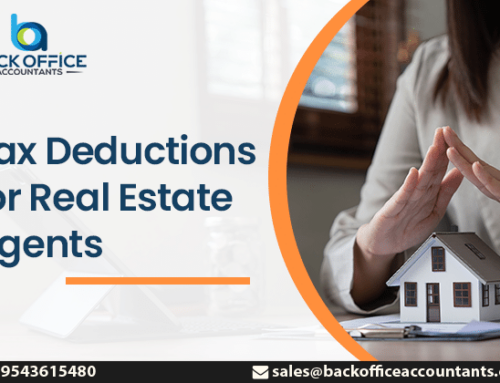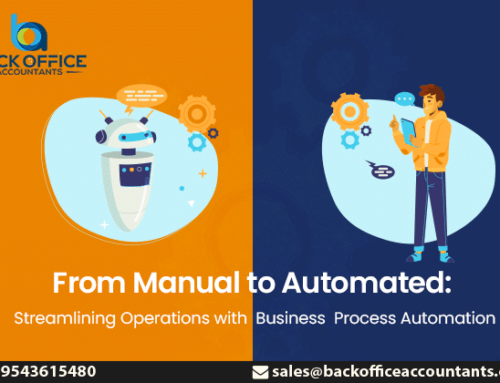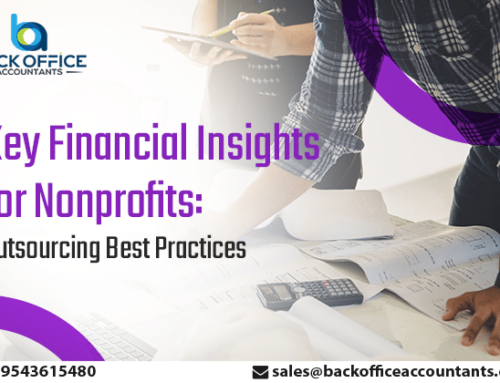While generating income is the goal of any business managing it efficiently is what determines the stability, success and longevity of the business, especially when it is as dynamic as the real estate business. Not only a real-estate business with its versatile asset classes attract heavy financial transactions but also is marred by complex taxation issues, ever-changing rules and regulations.
The number of leads you generate, sale you make, deals you close and money you bring –in, may not necessarily mean profit if your business is plagued by cash flow problems, increased operating costs, penalties, tax problems, financial discrepancies or even fraud. So whether you are a real estate property manager, developer or real estate investor you will need a basic idea even better, a firm grasp of real estate accounting. If you are one of them and are looking gain handy information on accounting basics this blog is for you.
Here we help you get a brief idea of real estate accounting, let you know the common accounting challenges and also provide you with some of the best real estate accounting practices for your business. So, read on:
Accounting for Real Estate Business:
Unlike other business where the product once sold is out of the door, the real estate business has its unique facets – the buy and hold strategy, the market fluctuations, different type of assets classes, and rules and regulations differing tax compliance making real estate accounting a challenging task that requires expert accounting services specialized in real estate accounting practices. However, three basic principles are fundamental to the real estate business that can help you get a grasp on how the real estate accounting functions:
Evaluating spending and expenses:
Just like another business, the first step to healthy financial standing is to evaluate the spending and expenses.
Spending as much money as you are making it, is the fastest way to have cash flow problems. And the only way to curb unnecessary spending is to evaluate the spending and expenses accurately by tracking and recording the transactions. In a day that is filled with generating leads, making sales and transactions, tracking day-to-day transaction can be a tough ask, but it could well be the best practice you can adopt in the early days of your business.
Hiring expert real estate bookkeeping services can help you in this regard to give you a snapshot of the financial health of your business.
Keeping up-to-date financial records helps calculate key performance indicators like bet worth, cash flow, profit and losses that can be used as benchmarks and goals
If you cannot hire a dedicated bookkeeper, you can seek a remote bookkeeper from remote accounting services with expertise in real estate accounting and bookkeeping.
Maximizing the revenues:
As you track your transactions & day-to-day operations to bring in the data, it can be utilized to breakdown the expenses and unlock potential opportunities that can maximize your revenue. This breakdown of your financial picture with required information may help you tweak your plan which over time add up to increase your revenue. Having an accountant with expertise and experience in real estate accounting can help you interpret your financial data tracked by a bookkeeper to convert it into insights that can help you improve your revenue.
Minimizing the debts:
A real estate business looking for growth and stability must actively take steps towards minimizing debts in addition to maximising revenue. Tracking, recording and evaluating the day-to-day transactions helps an accounting expert not only help you pay your dues and debts in time but also identifies the financial problems that can be fixed to cut loses.
Having an efficient bookkeeping function allows your accountant to restructure your finances and lay a solid plan that can help you alleviate your financial woes. For example, an accountant with the right bookkeeping assistance can help the Real estate business often save thousands of dollars on credit card interest rates, mortgages and transferring high-interest rate accounts to lower or zero interest rate. Having an expert bookkeeping and accounting for a real estate business also cuts down the CPA expenses, makes IRS audit easy and help you claim an even better tax deduction.
Organizing your finances by meticulously tracking and recording all the data in and out also helps you quantify the performance, identify key performance indices that are crucial to compare year over year growth, set goals and also to raise the capital.
So whether you are a real estate developer, agent, construction company, Condominium Corporation, or a real estate property manager, you must make sure you find expert bookkeeping and accounting services to fuel your growth.
If you are one of them and are looking for outsourced real estate accounting services, Back Office Accountants is one of the best remote accounting firms with a stupendous track record in real estate accounting services. Specialising in Accounts Payable Services for real estate businesses, we have worked with established real estate businesses, firms and corporations to meet their accounting requirements and can help you too. You can contact us here: https://www.backofficeaccountants.com/
While we have given an overview of the real estate accounting and bookkeeping services in part-1 of this blog, part-2 will be dedicated to the accounting challenges in the real estate business and it’s best accounting practices, here.







